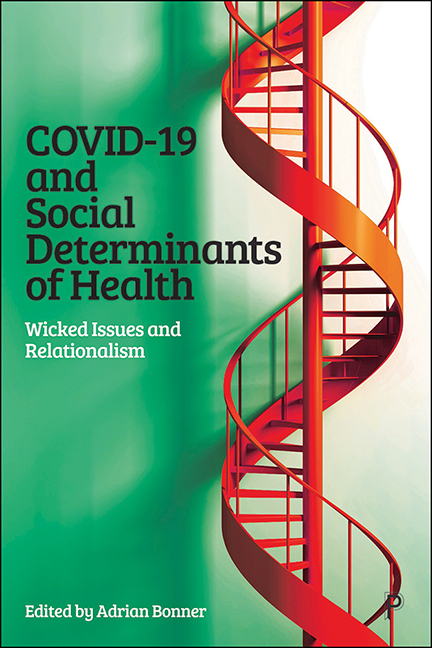Book contents
- Frontmatter
- Miscellaneous Frontmatter
- Contents
- List of figures and tables
- Notes on contributors
- Foreword
- Introduction
- Part I Wicked issues and relationalism
- Part II Regionalism and geopolitical environments
- Part III Public sector, COVID-19 and culture change
- Part IV The third sector
- Part V The case for relationalism
- Part VI Engagement and proposed changes
- Conclusion
- Appendix The Centre for Partnering
- Index
Part VI - Engagement and proposed changes
Published online by Cambridge University Press: 18 January 2024
- Frontmatter
- Miscellaneous Frontmatter
- Contents
- List of figures and tables
- Notes on contributors
- Foreword
- Introduction
- Part I Wicked issues and relationalism
- Part II Regionalism and geopolitical environments
- Part III Public sector, COVID-19 and culture change
- Part IV The third sector
- Part V The case for relationalism
- Part VI Engagement and proposed changes
- Conclusion
- Appendix The Centre for Partnering
- Index
Summary
The cultural factors that influence the formation of successful inter and intra-sectoral partnerships cannot be overstated. When it comes to engagement of the partners the commissioning and procurement regime, as a gateway, needs to reflect on a partnering of equals. This should include the role and involvement of the third sector. The Kruger Report makes reference to this as reviewed in Chapter 16.
The post-COVID-19 and post-Brexit effects, whilst taking account of the cost of living crisis, need to be reflected in a change to the approach to contracting products and services. Nowhere is this more important than within procurement. A balance must be struck between over-regulating the sectors and under-regulating them. If innovation is a key driver, then either approach can stifle this through too much prescription or lack of it leading to status quo and the avoidance of challenge.
A key issue to be considered within the context of procurement as a ‘gateway’ to more effective partnering is a recognition of two distinct activities. Firstly, the role of the specifier and, secondly, the role of the procurement professional, and engagement of contracting parties. Hitherto, these two activities have been regarded as a client function. It is time now to recognise the different and distinctive roles of commissioner and client.
If we are to make a success of this opportunity, the learning of the lessons of the past will be critical. However there is a lack of detailed evidence as to the reasons why some partnerships are successful, while other are disastrous. Academic research has a crucial role in helping to build a new and comprehensive base through its research and its training and educational programmes. All sectors, including the political class, should be ‘led by the evidence’ in terms of policy creation and guidance.
Future engagement of partners should reflect an environment which has facilitated the building of trust through an open and transparent process. This means a framework that enables full and frank dialogue between all sectors, both specifiers and deliverers. It also includes those having a direct interest in the outcome, including the third sector working within and on behalf
of the community.
- Type
- Chapter
- Information
- COVID-19 and Social Determinants of HealthWicked Issues and Relationalism, pp. 333 - 337Publisher: Bristol University PressPrint publication year: 2023

